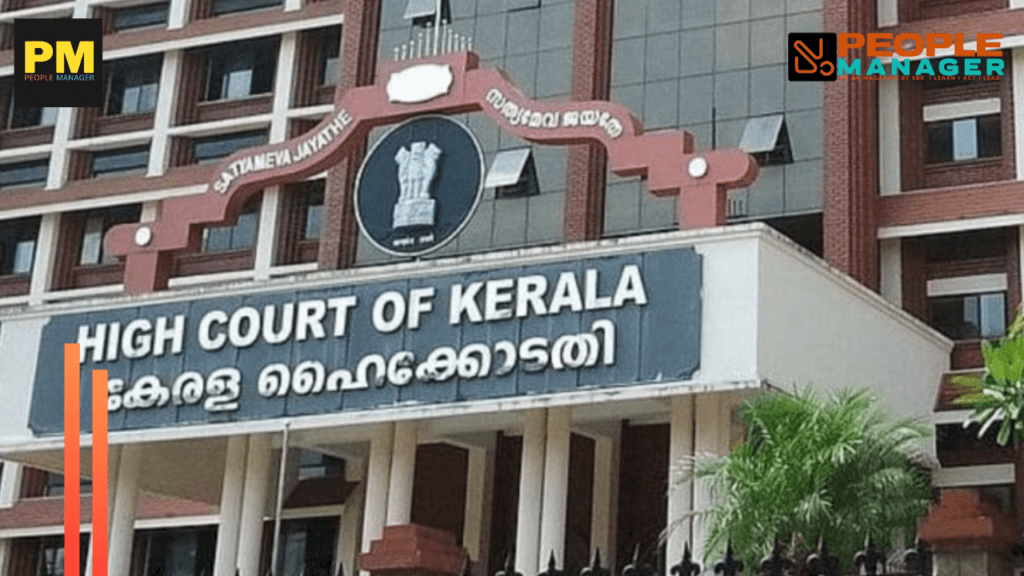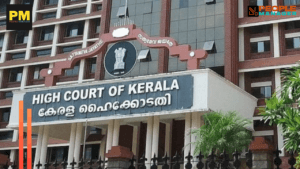Oral Complaints Cannot Replace Written Complaints Under PoSH Act: Kerala High Court
Justice PG Ajithkumar observed that Section 9 of the PoSH Act makes it mandatory for such complaints to be in writing.

The Kerala High Court recently observed that oral complaints of sexual harassment cannot be a substitute for a written complaint to trigger an inquiry under the Sexual Harassment of Women at Workplace (Prevention, Prohibition, and Redressal) Act, 2013 (PoSH Act).
Justice PG Ajithkumar observed that Section 9 of the PoSH Act makes it mandatory for such complaints to be in writing. The judge acknowledged that in the case of Prasad Pannian v. Union of India, it was held by the High Court that oral complaints are permissible in exceptional circumstances, when the complainant is not in a position to give a written complaint. However, Justice Ajithkumar clarified that this would not mean that a written complaint can generally be substituted by oral complaints.
The Court made the observation while quashing an inquiry report prepared by a local-level committee under the PoSH Act against the managing director of an IT company. The said inquiry had been conducted based on an anonymous complaint. Pertinently, the Court noted that the person who was alleged to be the victim of sexual harassment had not made any written complaint to trigger such an inquiry. The Court also found that it was not as if the complainant was not in a position to file a written complaint.
“Therefore, in the facts and circumstances of this case, the oral complaints made by the 4th respondent (alleged victim) cannot be a substitute for the complaint in writing contemplated by Section 9 of the POSH Act. In that view of the matter, the inquiry conducted by the 2nd respondent becomes illegal,” the Court held.
The Court was dealing with a petition filed by the MD (petitioner) against whom the inquiry report was prepared. By way of background, the MD had earlier dismissed a woman employee from service, citing failure to perform her work adequately. The ex-employee challenged her termination from service before a labour court, while the petitioner filed a case to restrain her from entering the office premises.
Later, an anonymous complaint was sent to the District Collector levelling various allegations against the petitioner. This complaint was forwarded to the Local Level Committee, which conducted an inquiry under the PoSH Act. During the course of this inquiry, the committee also interacted with the ex-employee, who made allegations of harassment at work due to personal animosity.
She also is alleged to have said that the MD spread lewd rumours against himself in her name. However, she denied being asked any sexual favours or being molested by him. Further, the Court recounted that she is also said to have expressed doubts before the committee over whether this case was fit to be termed a sexual harassment case.
The committee eventually concluded that the MD (petitioner) had created a hostile work environment and recommended that he be asked to apologise to the ex-employee apart from paying her compensation. This was challenged by the petitioner before the High Court, where he also challenged Rule 7(6) of the PoSH Rules, which prohibited the presence of lawyers during inquiry proceedings.
The Court found that the committee lacked jurisdiction under Section 11 of the POSH Act to conduct the inquiry since there was no written complaint by the alleged victim. It also noted that even the allegations did not appear to constitute sexual harassment. “The dispute and harassment meted out on the 4th respondent were more relating to her employment, and the reason thereof was the petitioner’s personal grudge against her. It was a labour dispute rather than a dispute connected to sexual harassment. The 4th respondent had duly taken up the matter before the police as well as the Labour Court,” the Court added.
The Court found other procedural lapses as well on the part of the committee, including that it did not examine witnesses in the petitioner’s presence (the interactions were carried out through phone conversations). This meant that the petitioner’s right to cross-examine witnesses was violated, leading to a violation of natural justice principles. The Court, therefore, set aside the inquiry report, finding it ultra vires the PoSH Act.
The Court left open the question of whether PoSH rules prohibiting the presence of lawyers during inquiries were legally valid, since the inquiry report had already been set aside and since the petitioner did not seriously press this legal question.
The Court, however, briefly observed that such a rule was inserted to protect the privacy of complainants in sexual harassment cases. “Considering the scheme of the statute, its objective and the need to protect the privacy of the complainant almost in all cases, such a provision would have been included in the POSH Rules … I found above that (inquiry) report is untenable … the plea for declaring Rule 7(6) of POSH Rules unconstitutional becomes academic in this case … I leave that question undecided,” the Court said.
The petitioner was represented by Senior Counsel K Jaju Babu, along with P Fazil, VS Sreejith, Jayasree Manoj, Saju Thaliath, and Jithin Paul Varghese. Public Prosecutor Sanal P. Raj appeared for the Local Level Committee. Advocate M Jayakrishnan Vazhoor appeared for the Centre. Advocate R. Anilkumar appeared for the former employee.
For a deeper insight into the evolving workplace paradigm, stay tuned to PeopleManager.co.in.
- Financial Crisis Cannot Compel an Employee to Work, Resignation Rejection Amount to Bonded Labour: Kerala High Court. - February 17, 2026
- Pernod Ricard India introduces Cheers VRorld, an industry-first VR-powered onboarding experience in the Alco-Bev sector - February 11, 2026
- Jio-bp Appoints Sareeta Bhatikar as Chief Human Resources Officer to Steer Next Phase of Growth - February 11, 2026








